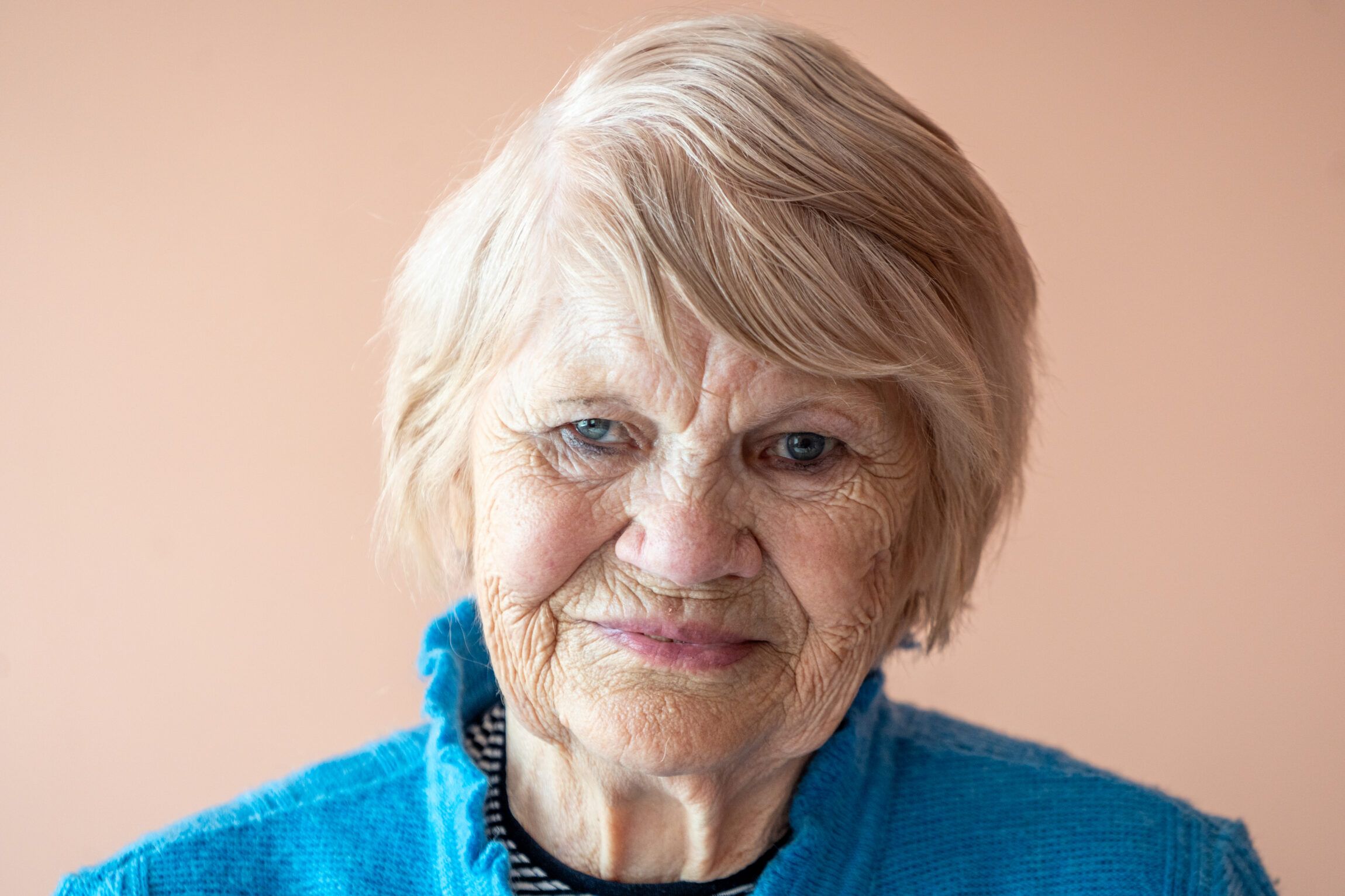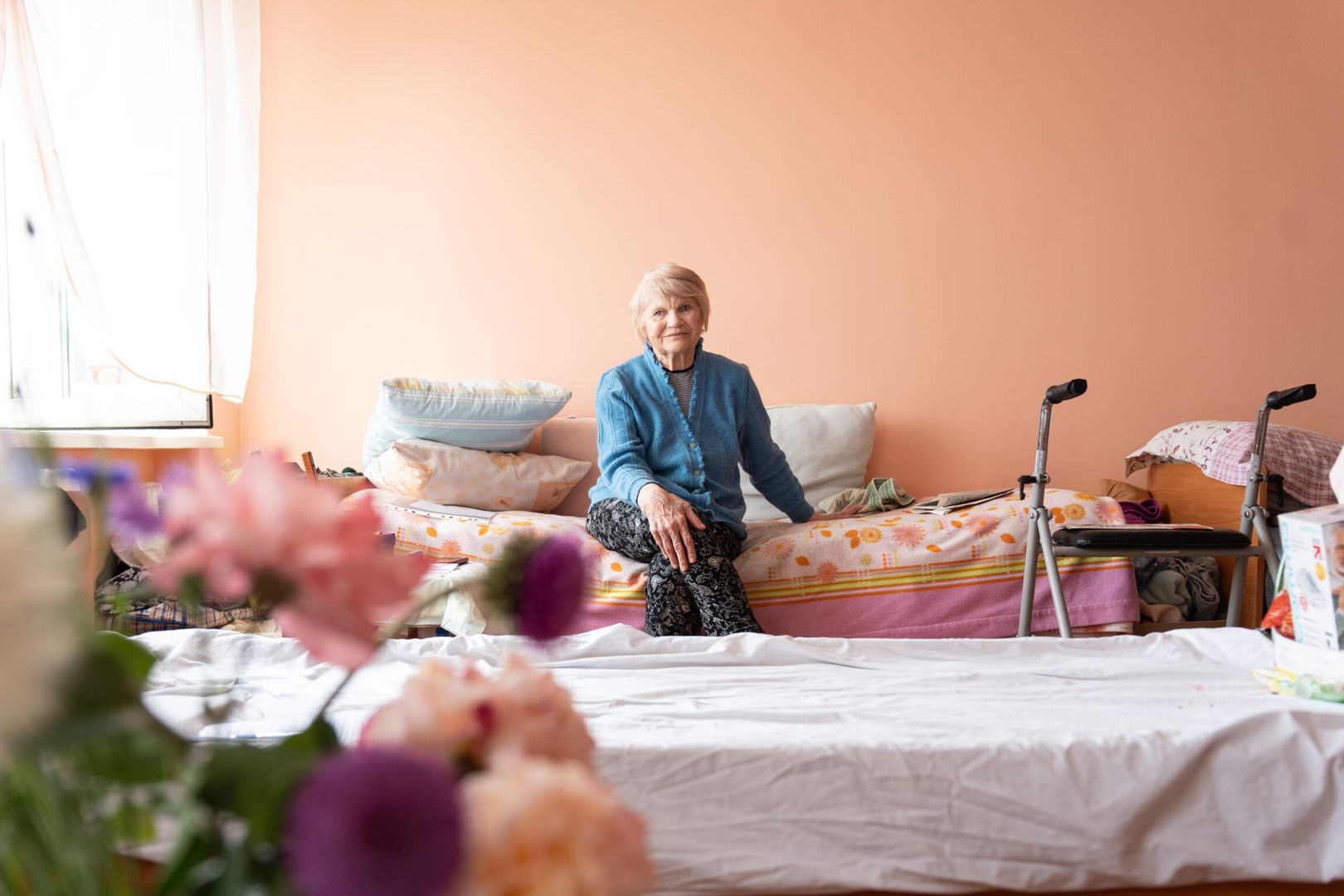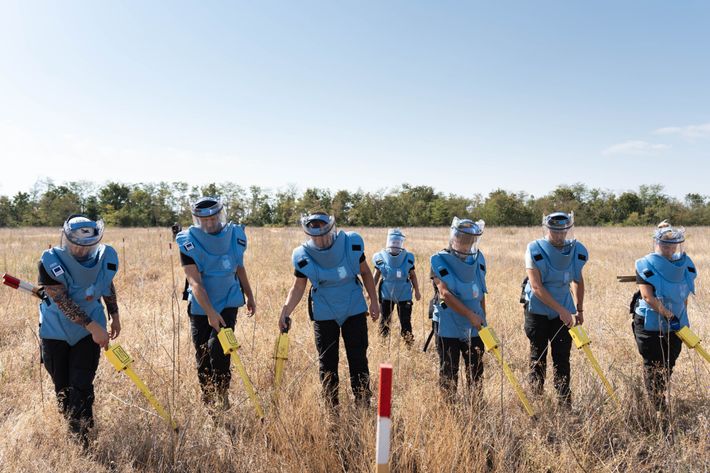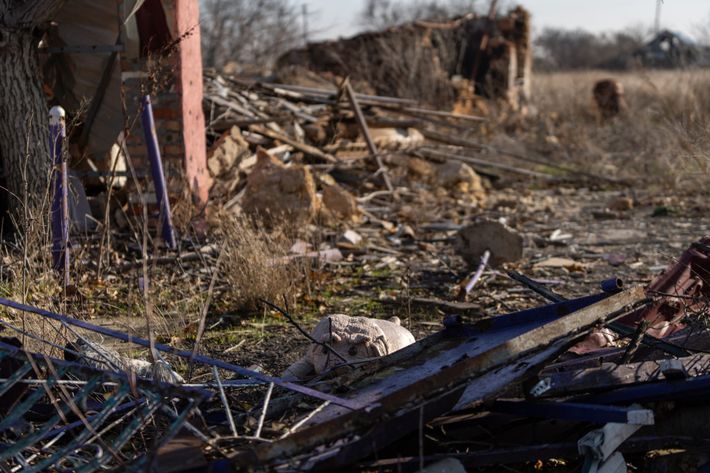Valentyna Bondar, 89, sits alone in a small room in a temporary shelter in Mykolaiv, sharing her space with just one other occupant. Around her are empty beds, which have been decorated with flowers and other adornments. Once a boarding school for children with respiratory issues, the building has been repurposed to house elderly evacuees like Valentyna, who was forced to flee her home in the village of Luch, which is on the border of Mykolaiv and Kherson regions due to the ongoing war in Ukraine. Though safe from the frontline violence, she faces a new kind of struggle: isolation and a relentless yearning to return home.
“I want so much to go home. Every day, I sit here alone. Both my son and daughter have passed away, and the rest of my family is either abroad or far away,” Valentyna says quietly.
Valentyna’s life changed in early 2022, when Russian forces closed in on her village. Just weeks after the conflict erupted, her home was bombed. The blast left her with severe injuries, including a fractured hip, forcing her to leave everything behind as she was evacuated to safety in Mykolaiv.
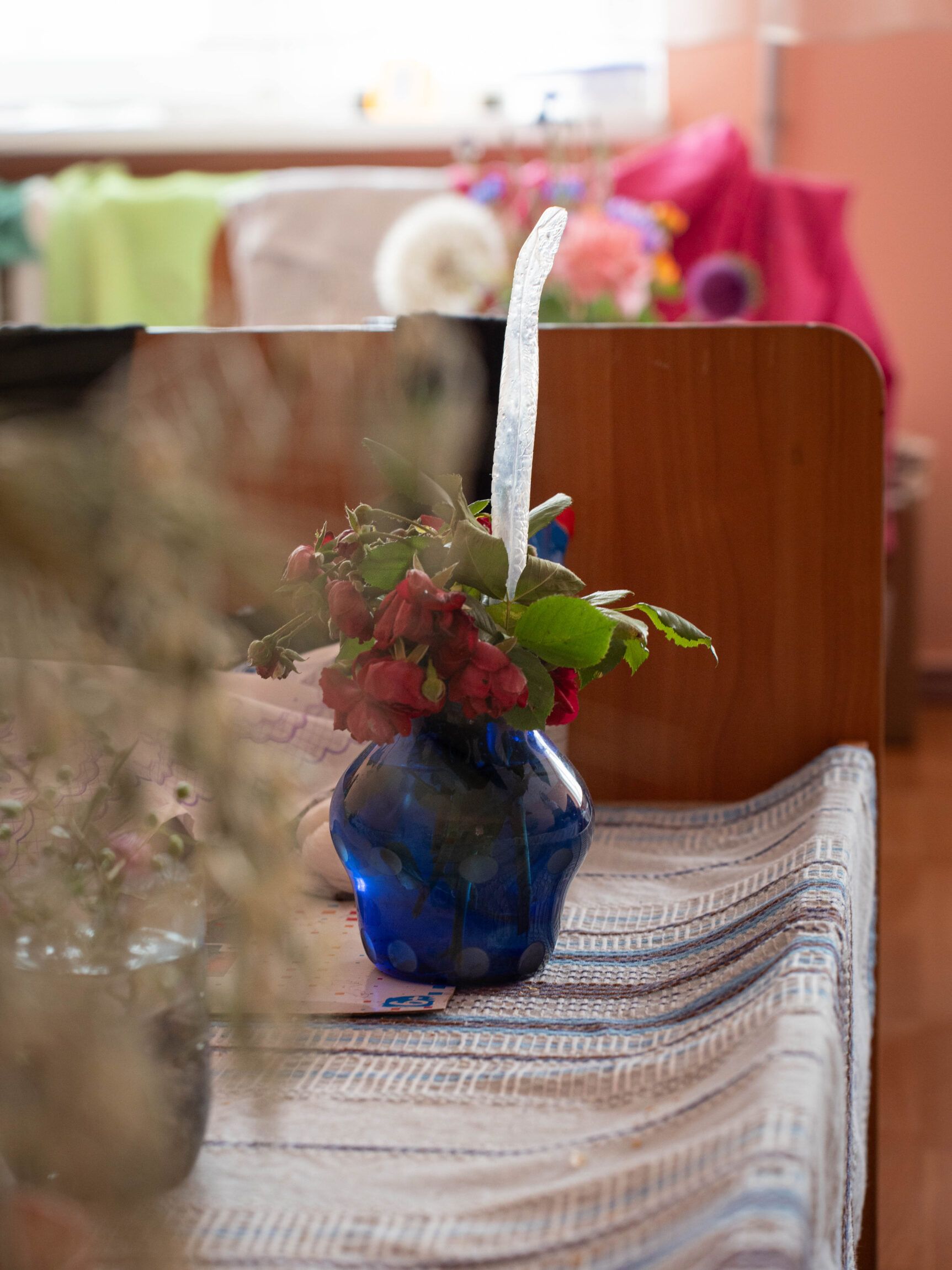

New SIM card, bank account, and pension certificate
Now, with no income or access to basic resources, Valentyna relies on assistance from Right to Protection, an organization partnered with the DanChurchAid (DCA) and Norwegian Church Aid (NCA) Joint Country Programme (JCP-UA), financed by the European Union (EU). Staff from Right to Protection are helping her obtain essential documents like her tax identification number, a new pension certificate, a bank account, and a SIM card, which allows her to stay in contact with her family abroad. This support is a lifeline, enabling her to access her pension and even seek medical assistance for her injuries.
Along with the conversations with Right to Protection case managers, the calls help her combat loneliness at the shelter, where she lives.

“I am alone here in the corner of this big room,” says Valentyna.
With limited mobility, Valentyna’s perspectives for a social life are challenged. Unfortunately, hope for Valentyna’s full recovery are slim. Doctors have advised her that further hip surgery is impossible due to her fragile health. She must now endure chronic pain, which has greatly reduced her mobility.
“I want to live. That is my greatest hope,” she says, adding that her dream is to have a place of her own once again. “I know it’s important to have patience, but it is difficult to stay optimistic.”
Over the course of a year, with European Union support, DCA-NCA has helped 100,000 people in Mykolaiv and Kherson by combining support for people like Valentyna with humanitarian mine action and legal aid. By combining those efforts, DCA-NCA is targeting the complex needs for people in Mykolaiv and Kherson Oblasts, who have lost almost everything and are trying to rebuild their lives.

Remembers World War II
This is not her first encounter with the horrors of war. Valentyna vividly remembers the brutal executions of resistance fighters by Nazi forces in Mykolaiv during World War II, which took place on what is now the site of the city’s only McDonald’s. She recalls the hunger and fear that filled those years.
“I never thought I would live to see war come to my home again,” she says.
When she was evacuated in March 2022, she could bring only her passport and an old Soviet pension certificate. Once a teacher, Valentyna has long been retired, and these documents were the only reminders of her past life.
